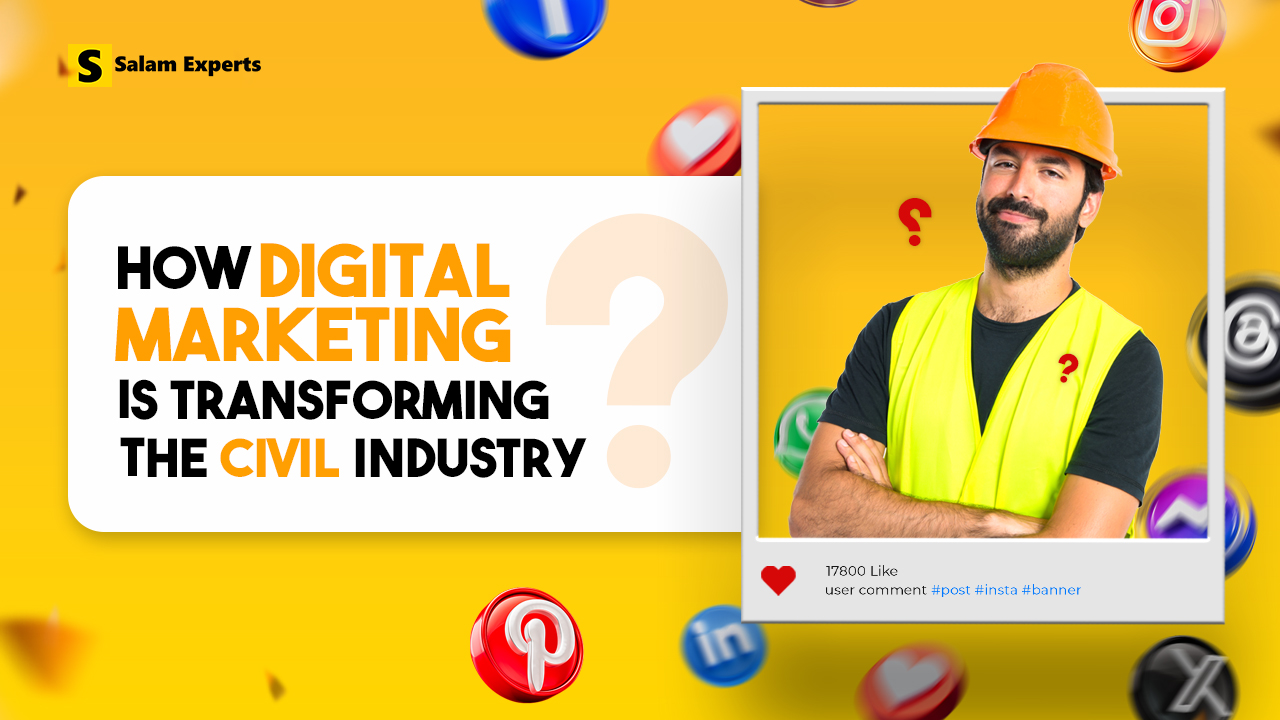How Digital Marketing is Transforming the Civil Industry

The Civil Industry is Going Digital
For decades, the civil and construction industries thrived on traditional networking, physical site visits, and word-of-mouth referrals. But in today’s digital-first economy, those methods alone no longer cut it. In 2025, civil brands that aren’t online are invisible—and missing out on high-value contracts, clients, and long-term growth.
At Salam Experts, we’ve partnered with civil contractors and industrial suppliers like OxRock Pty Ltd known for their high-performance grease guns, lubricants, and maintenance tools to design digital strategies grounded in real industry needs. Our team blends firsthand experience in the civil and industrial sectors with deep expertise in SEO, content marketing, and paid media to help brands like OxRock strengthen authority, increase qualified traffic, and drive consistent conversions from their target markets.
This article shows how digital marketing is reshaping the civil industry from local SEO and content marketing to promoting niche tools like weather-resistant markers and grease guns. If your brand wants to stay visible, scalable, and competitive in 2025, this is your strategy blueprint.
SEO: The Foundation of Online Visibility
Search Engine Optimization (SEO) is a game-changer for civil companies. Whether you manufacture construction tools or manage large-scale infrastructure projects, SEO helps your audience find you when they search for solutions online.
- Local SEO: Civil firms often serve specific regions. Optimizing for local search ensures you appear when someone looks for “civil contractor near me” or “excavation services in [city].”
- Technical SEO: Ensures that your website loads fast, is mobile-friendly, and properly indexed.
- On-Page Optimization: Including the right keywords like “construction cleaning products” or “grease gun maintenance” helps align your site with user intent.
SEO is not a one-time effort. It’s an ongoing strategy that brings consistent, compounding returns.
Content Marketing: Educating and Attracting Buyers
Educational blog content is one of the most powerful tools civil brands can use to attract B2B and B2C clients. People want to buy from companies that demonstrate expertise and offer solutions.
Use Case: Marketing Niche Tools
Let’s say you manufacture or sell weather-resistant marking tools. These products solve specific problems for professionals who work in unpredictable outdoor conditions. By publishing a blog post titled “Top 10 Weather-Resistant Marking Tools for Construction Sites” or creating a comparison guide, you’re offering valuable information that builds trust and drives organic traffic.
In fact, educational content like this not only helps rank for specific keywords, but also earns backlinks from relevant industry articles that highlight underrated construction tools.Content is king especially when it’s focused, solution-driven, and easy to read.
Paid Advertising: Reaching the Right Audience Fast
While SEO is a long-term play, paid advertising provides immediate visibility. Google Ads and LinkedIn Sponsored Posts can help civil brands reach decision-makers, procurement officers, and contractors right when they’re researching solutions.
- PPC for Tools and Equipment: Promote product pages or landing pages for construction tools.
- Retargeting Ads: Stay top-of-mind with visitors who didn’t convert the first time.
When executed well, paid media can complement your SEO and content marketing efforts.
Social Media: The New Word-of-Mouth
Social media is no longer just for B2C brands. LinkedIn, YouTube, and even Instagram have become powerful platforms for civil companies to showcase projects, tools, and tips.
- YouTube: Post tool demos, project walkthroughs, and safety tips.
- LinkedIn: Share blog posts, white papers, and company milestones.
- Instagram: Use reels to showcase tools in action.
If your competitors aren’t on social media yet, now’s your chance to get ahead.
Email Marketing: Nurturing Long-Term Relationships
Email marketing remains one of the most cost-effective ways to engage with past clients and nurture leads. For the civil industry, it’s ideal for:
- Announcing new services or products
- Sharing recent projects or case studies
- Offering seasonal discounts or consultations
Segment your lists based on roles (engineers, contractors, procurement teams) and customize the messaging accordingly.
Analytics and Tracking: Data-Driven Decisions
Digital marketing is powerful because it’s measurable. Tools like Google Analytics, Hotjar, and HubSpot can show you:
- Which content converts best
- Where traffic is coming from
- What your ROI looks like
Civil companies can use these insights to allocate budgets smarter, improve campaigns, and ultimately, generate more qualified leads.
Final Thoughts: Don’t Get Left Behind
The civil industry is evolving, and digital marketing is at the core of that change. Whether you’re promoting heavy equipment or weather-resistant marking tools, there’s an opportunity to stand out through SEO, content, and targeted advertising.
Digital marketing isn’t just for tech startups or retail brands anymore. It’s a necessity for every modern civil company aiming to thrive in 2025 and beyond.






